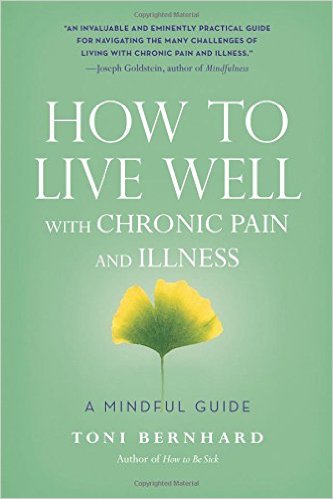Grief for My Disabled Child - An Uplifting Story
This article, by K, mother of Rosie (not her real name) is a a message of hope for those coping with grief for a disabled child.
There's a kind of grief which you can never really get over completely, but you can learn to live with positively on a daily basis. It's the grief of having a disabled child. When our baby was just a few days old, we discovered that she had a medical problem – severe epilepsy – that was likely to lead to lifelong physical and mental disability.

Grief for a Disability includes Shock and Guilt
The initial feelings were of shock and disbelief – this was the sort of thing that happened to other people, wasn’t it? At first, I found it very difficult to grieve – I was too tied up in the hospital procedures and diagnostic tests, trying to understand what was happening.
Then the fear set in – the fear that I wouldn’t be able to cope physically and, more worryingly, emotionally with caring for a profoundly disabled child. After that, the guilt – for resenting that my life would never again be my own, that Rosie would almost certainly never live independently.
Grief for My Intellectually Disabled Daughter
We will always grieve for the child that might have been. We will never know what it is to have a simple conversation with her – she is non-verbal and, at the age of almost thirteen, has a cognitive level below that of a two-year-old.
Finding the Positive in Grief
I think that most people who find themselves in a situation like this will astonish themselves at how much positivity they can find. We were told Rosie might never walk – we researched physical therapy methods, invested a lot of time and effort, and we now have a young lady who can walk and even run, although her balance is not the best. She has been on outdoor activity holidays, and has canoed, tackled climbing walls and been potholing. She needs constant support throughout these activities, but she really loves them – how can I grieve when I see her so radiantly happy?
We never gave up hope of finding a specific diagnosis, even though the odds were stacked against us. It took ten years, and numerous blood tests, but we learned that Rosie has a rare genetic disorder affecting the transmission of messages between brain cells.
Find Support for Grief for Disabled Children
The wonders of the internet led us to meet virtually, and even in person, other families with similarly affected children. The support, comradeship and sharing of advice which followed was tremendous, and is one of the greatest benefits of having a “label”. There is also now support for families of disabled children who don’t have a diagnosis, through an organization named SWAN – Syndrome without a Name.
SWAN UK
SWAN USA
http://www.undiagnosed-usa.org/
SWAN AUSTRALIA
The First Difficult Years of Grieving for a Disabled Child
The first two to three years were by far the hardest to deal with emotionally. I think it takes time to accept the version of “normality” which you come to recognize as your own. I held back my tears when I went to the postnatal classes and saw how all the other babies could raise their heads, but Rosie couldn’t. I smiled at the platitudes: “they all develop in their own time”.
The grief must have been present under the surface most of the time, but what I remember now, looking back after almost thirteen years, are specific incidents, such as:
- The realization that, because of the localization of the seizures within her brain, Rosie might never learn to speak, understand language, or read. As a child I loved reading, I still do, and the thought that Rosie might never be able to take herself to a fantasy world simply by looking at the words on a page left me utterly distraught. But, undeterred, I have always read to her, and she loves books. I don’t know whether she understands every word, but she loves the pictures, the rhythm of my voice, the made up monster sounds, and she laughs along with me.
- Driving along a road one day, I had to stop at a zebra crossing for a group of young girls, maybe about ten years old, to cross. They were carefree and happy. I drove off in tears, knowing that I would never be able to give Rosie that independence.
Be Proud of Every Step of Hard Won Progress
It would be easy to become lost in a lifetime of grief, but what you learn to do is to see the positive in every little step of progress. Everything Rosie has learned to do has been much harder won for her than for an “ordinary” child, and I am immensely proud of her tenacity and joie de vivre.
I’d recommend that any parents of a disabled child read an article entitled “Welcome to Holland” by Emily Perl Kingsley, which can be found online. I’ve read it numerous times, and it never fails to move me to tears, because it describes so beautifully, with positivity, the process we all go through.
There's also a beautiful article which is a response called "Why I hate Welcome to Holland"
Recommended Read:
Related Pages:
More Stories by our Readers and Guest Writers
- Grief and Sympathy Home
- Articles on Grief
- Grief for Disabled Child
Where to get help:
Have You Considered One-on-One Online Grief Counseling?
Get Expert and Effective Help in the Comfort of Your Own Home
The following information about online counseling is sponsored by 'Betterhelp' but all the opinions are our own. To be upfront, we do receive a commission when you sign up with 'Betterhelp', but we have total faith in their expertise and would never recommend something we didn't completely approve.
Do you feel alone and sad with no support and no idea how to move forward? It can be tough when you are stuck in grief to find the motivation to get the most out of your precious life.
Online counseling can help by giving you that support so you don't feel so alone. You can have someone to talk to anytime you like, a kind and understanding person who will help you to find meaning in life again, to treasure the memories of your loved one without being overwhelmed and to enjoy your activities, family and friends again.
- Simply fill out the online questionnaire and you will be assigned the expert grief counselor most suitable for you. It only takes a few minutes and you don't even have to use your name.
- Pay an affordable FLAT FEE FOR UNLIMITED SESSIONS.
- Contact your counselor whenever you like by chat, messaging, video or phone.
- You can change counselor at any time if you wish.
- Click here to find out more and get started immediately.
- Or read more about how online counseling works here.
Sales from our pages result in a small commission to us which helps us to continue our work supporting the grieving.
Hypnosis for Grief - 10 Ways It Can Help You
Try a gentle hypnotherapy track to relax the mind. Learn how self-hypnosis can help you cope with grief at any time of the day or night.








